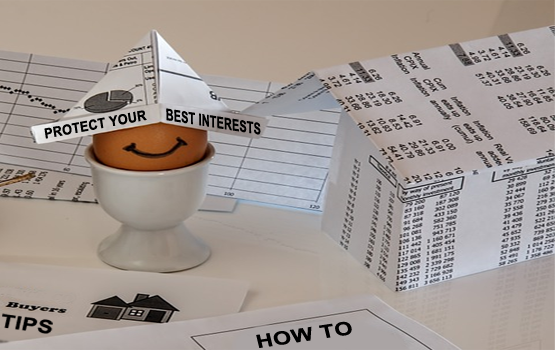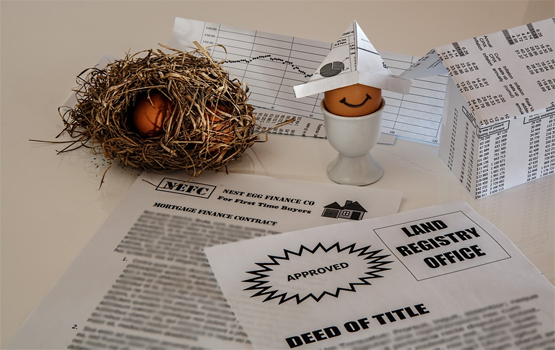Cut Years Off Your Mortgage
With today's low interest rates, deciding to buy a home is one of the best decisions anyone can make. Financing such a big purchase, however, often means combining savings with money borrowed through a financial arrangement, commonly referred to as a mortgage.
Mortgages allow you to pay back the principal, or amount borrowed, plus interest, in regular installments. The taxes on your home can also be added to the mortgage payments. Most mortgages are amortized over 25 years — that's the length of time it takes for you to pay the debt off in full.
For most home buyers, paying off the mortgage is a long-term commitment. That's why it's important to begin looking at options before buying, or before renegotiating your existing mortgage. When home buying, your Realtor can help you calculate how much mortgage you can afford and provide advice on the many options available.
But even if you find yourself locked into a long-term mortgage you can afford, there may still be ways to pay it down and be mortgage-free sooner.
Pre-payment options
Most financial institutions now offer generous pre-payment options. Although many limit how often you can use an option, it is well checking into them and comparing what one lender offers over another.
Many lenders now permit an annual lump sum payment on your mortgage with the amount going directly to reducing your principal. A lump sum payment of $2,000 a year on an $80,000 mortgage, for example, can significantly cut years off your mortgage.
Other pre-payment privileges include doubling up payments whenever you have extra cash. Some lenders allow additional payments against the mortgage balance up to the equivalent of a full monthly payment on every payment date or several times throughout the year. Accelerating payments by paying every two weeks instead of monthly, for example, can also result in substantial savings over the life of a mortgage.
While taking advantage of pre-payment privileges can save you thousands of dollars in interest costs over the life of your mortgage, it also pays to consider all your options. You may be reducing the principal, but you are not reducing your existing payment obligations. You still must make your regular payments.
Pre-payment critics also say that if your interest rate is reasonably low, you may be able to put the extra money to better use. When you pre-pay $2,000 a year, you reduce your principal, but you get no tax benefit. Put the same amount of money into a registered retirement plan and you get a tax break. If you invest this amount in a mutual fund at 10 per cent and your mortgage rate is seven per cent, you're making three per cent more on your investment.
Lower Your Amortization Period
The average mortgage must be paid off in 25 years. By selecting a shorter amortization period you can cut years off your mortgage. The shorter the period, the larger the payments, but the more you save on interest and the long-term cost of the loan. Shortening the amortization period is a great idea when interest rates are low and you can afford the larger monthly payments.
Re-Finance Your Mortgage
This is only a good idea if you have a fixed, long-term mortgage and rates have fallen more than two per cent. But the cost of refinancing a loan to get a better rate can be very high. To have your closed mortgage discharged, you will usually have to pay either a three-month interest penalty or an “interest differential”, which can cost considerably more.
You can reduce the penalty, which is based on the outstanding principal, by exercising a prepayment privilege and reducing the principal first. This can be done using your own money or by arranging with another lender to borrow enough to discharge your mortgage and pay the discharge penalty. Whatever you decide, seek expert advice before re-financing, or you may end up paying more than if you stayed the course.
Source: Ontario Real Estate Association
HELPFUL INFORMATION:
- Arranging Your Mortgage
- How a Lender Makes Decision About You
- Your Credit Score
- Your Down Payment
- How to Save for a Down Payment
- Goverment Programs Available for Home Buyers
- Get Preapproved for Mortgage
- Mortgage Calculators
- Mortgage Insurance
- FREE Reports and Articles
- Should You Invest In Property Inspection?
- Real Estate Glossary
- Real Estate Terminology
YOUR CREDIT SCORE
Credit scoring model seeks to quantify how likely the consumers are to pay off their debt without being late. The more your credit file demonstrates that you pay your debt on time, the more desirable you become as a potential customer. The higher the client's score is, the less likely they are to default on their loan.
Read more...
How to Protect Yourself
Consumer Protection Ontario is an awareness program from Ontario's Ministry of Government and Consumer Services and other public organizations, known as administrative authorities, that promote consumer rights and public safety. Visit their website and learn more about Consumer Protection Ontario and how to protect yourself.
Buyer Info
Since choosing a right property to buy starts with needs and desires and finishes with a sizable portion of your earnings used for paying for it, it's important to ensure that the property you choose both meets your needs and is a good "fit" with your financial situation.
Read more...
Mortgage Info
Regardless of how certain you are that you will get mortgage, it is always good idea to get pre-approved from the mortgage lender of your choice. This will officially address any questions about your eligibility, rate, terms and it will enable you to better negotiate for the property of your choice.
Read more...



